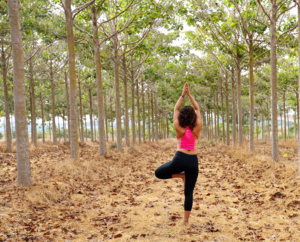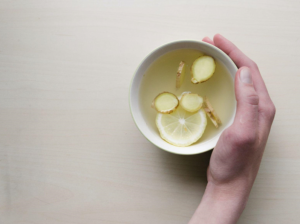
Meditation makes things easier when it comes to living a healthy and balanced life. It helps you relax, reduce stress, improve your focus, and find inner calm. Meditation can even help with physical pain by calming the nervous system.
Meditation can not only benefit you physically but can also help you on an emotional level as well. By taking time out for yourself every day, you can gain better control over your emotions and become more aware of the present moment. Meditation can also help you develop self-awareness and inner peace, and clarity.
Making meditation part of your everyday life doesn’t have to be complicated or time-consuming.
Before Dig into more details, let’s get to know the benefits of meditating:
Enhances self-awareness and understanding
One of the main benefits of meditation is that it helps you become more aware and conscious of yourself, your emotions, and your thoughts. You can gain a better understanding of who you are as an individual by taking time out for yourself to observe and reflect. Whenever people stop doing what they are doing and take time to meditate, they realize how much is happening inside of them.
Reduces stress
Another great benefit to meditating is that it helps reduce stress and anxiety. When we meditate, we can better manage our thoughts and emotions, allowing for a greater sense of calm and relaxation. This, in turn, helps us to be more mindful and present in the moment. For a stress reliever, meditation can be an incredibly effective tool.
Improves focus
Meditation also helps to improve your concentration and ability to focus on tasks. It’s easier to stay focused on the job when we are not being pulled in different directions by our thoughts and emotions.
Aids with physical health
Meditation can be an excellent tool for managing physical pain as well. By calming the nervous system, meditation can help to reduce inflammation and tension in the body, leading to excellent overall physical health.
Increases resilience
Meditating can help to build mental strength and resilience. By observing our thoughts and feelings without judgement, we are able to better manage difficult situations and remain strong under pressure.
Improves relationships
By taking time out for ourselves each day, we can become more mindful and compassionate in our interactions. This can lead to better relationships and more meaningful connections with the people in our lives.
Increases creativity
Meditation also helps boost creativity by allowing us to tap into our inner minds and connect with ideas we may not have had access to before. By clearing out mental blocks and being open to new ideas, we can become more creative and productive.
Overall well-being
Lastly, meditation can help to promote overall well-being and harmony in life. By taking time out for yourself each day, you can gain greater clarity and better understand what’s important in your life. This can lead to greater contentment, joy, and satisfaction with life.
With all these amazing benefits, it’s no wonder why meditation is becoming increasingly popular. There are a few different ways to incorporate meditation into your daily life, such as guided meditations, mindful breathing exercises, and even just taking time out for yourself with some quiet contemplation.

Making meditation part of your everyday life isn’t as hard as it may seem. Observe your thoughts and emotions without judgement for a few minutes daily by sitting silently. This can be done either through mindfulness or simply by sitting still, focusing on your breath, and noticing how you feel in the present moment.
Beginner’s Guide to Getting Start with Mindfulness Meditation
Mindfulness meditation is a great way to start your journey into the world of meditation. It’s a simple, straightforward practice that can be done in as little as five minutes. To make things more manageable, break down the practice into three steps:

Find a comfortable position
Either sitting upright in a chair or lying down are both great positions to start with. If possible, try to find someplace that is quiet and free from distractions. To make yourself even more comfortable, you can close your eyes or focus on a point in front of you.
Focus on your breath
Once you’re in your chosen position, let your attention relax by taking a few deep breaths. Notice how the air feels as it moves through your body and observe any sensations that arise.
Notice your thoughts
Thoughts will inevitably arise during meditation, and it’s important to be aware of them without judging or trying to push them away. Notice the thought, acknowledge it, and then move on. This will help you stay focused on the present moment.
Take it slow
Mindfulness meditation can be challenging to practice at first, so taking things slowly is essential. Once you become comfortable with the process, start with short sessions and gradually increase them.
Be patient
Meditation is a journey that requires patience and dedication. Don’t expect to have instant results, and be easy on yourself if your thoughts wander. With practice, you will start to gain more clarity and calmness.

By practicing mindfulness meditation regularly, you can start
10 Things You Should Know Before Starting a Meditation Routine

Whenever you make things a part of your everyday life, it’s essential to understand the basics. Here are 10 things you should know before starting a meditation routine:
⦁ Meditation is not about “emptying your mind” – It’s about focusing on one point and allowing thoughts or feelings that arise to pass by without judgment. Choose a phrase or word to repeat throughout your session to enhance your practice.
⦁ Start with short sessions and work your way up – Beginner meditators should start with shorter sessions (5-10 minutes) and gradually work their way up to longer ones as they become more comfortable.
⦁ Don’t be discouraged if you find it difficult – Meditation requires practice, and initially, it’s natural to find it difficult. Don’t be discouraged if you find yourself easily distracted or unable to focus.
⦁ Meditation can improve your physical health – Studies have shown that regular meditation can reduce stress, lower blood pressure, and even improve symptoms of chronic pain. In recent studies, participants reported increased energy levels and improved sleep quality.
⦁ Find the right type of meditation for you – There are many types of meditation, so it’s important to figure out which one is best suited to your needs.
⦁ Find a comfortable position and practice good posture – You can either sit upright in a chair or lie on the floor, to begin with, but make sure your posture is correct. According to⦁ ⦁ Harvard Health Publishing, a good posture is important because it will help you relax and stay focused during your practice.
⦁ Set aside a specific time for your practice – It’s helpful to pick a specific time in the day for your practice and stick to it. This will help you form a habit and make the most out of your sessions.
What are the health benefits of meditation and mindfulness?
Recent research has looked at whether mindfulness or meditation may help people manage their stress, anxiety, pain, or withdrawal symptoms from opioids, alcohol, or nicotine.

Other research has examined the impact of mindfulness or meditation on regulating weight or sleep. However, a lot of the study on these subjects has been exploratory or not rigorously scientific. The results from the research have been difficult to analyze. They may have been taken too positively since they evaluated several various forms of meditation and mindfulness practices, and the benefits of those practise practices are challenging to assess.
Stress
When doing our research, we noticed a systematic review and meta-analysis of 47 studies with 3,515 participants concluded that mindfulness meditation can reduce stress. The study found that mindful meditation significantly affected psychological symptoms of stress (anxiety, depression, and negative mood) and physiological measures (blood pressure and heart rate). [1]
Pain Management
If we talk about pain management, then 99 studies show, according to the contribution of 8,359 participants, that mindfulness meditation was associated with a slight to moderate decrease in self-reported pain. The study also found that mindful meditation was more effective in reducing pain than other forms of relaxation or distraction. [2]
Weight Regulation
In one more study, a systematic review of 15 studies concluded that mindful eating positively affected weight management. The study found that mindful eating was associated with reduced body weight, BMI, and waist circumference. [3]
Sleep Quality
If we focus on its role in sleep improvement, a meta-analysis of 25 studies with 1,862 participants concluded that mindfulness meditation had a small, significant effect on improving sleep quality. The study found mindful meditation was associated with improved sleep onset latency, total sleep time, and subjective sleep quality. [4]
Opioid Withdrawal
About nine studies concluded mindfulness-based interventions were associated with decreased opioid withdrawal symptoms in people addicted to opioids. The study found that mindfulness-based therapies effectively decreased craving, insomnia, anxiety, and depression among participants with opioid addiction. [5]
Alcohol Dependence
After some recent discoveries, a systematic review of 21 studies concluded that mindfulness-based interventions were associated with decreased alcohol consumption among people with alcohol dependence. The study also found that mindful meditation significantly reduced cravings and improved mood in those with alcohol addiction. [6]
Nicotine Addiction
Nicotine is no wonder harmful to the human body, and eight studies concluded that mindfulness-based interventions effectively decreased nicotine consumption among those with nicotine addiction. The study also found mindful meditation was associated with improved mood and reduced cravings in those trying to quit smoking. [7]
Mindfulness and meditation can positively affect physical health by reducing stress, pain, and cravings while improving sleep quality. However, it is essential to note that more research is needed to understand better the effects of mindfulness and meditation on physical health.
Sources:
How do meditation and mindfulness work?
Meditation and mindfulness can make us more aware of our thoughts, feelings, and body sensations. This helps to reduce stress, anxiousness, and rumination (constantly dwelling on negative thoughts). It also reduces distraction from intrusive or unhelpful thoughts.
Mindfulness is an approach that can be used to explore how we experience the world and understand our thoughts. It teaches us to recognize our physical sensations, feelings, emotions, and opinions without judging them. As a result, it helps us to remember how our minds can be affected by external events or responses.
Mindfulness meditation emphasizes mindful awareness and acceptance of these experiences from moment to moment, without judgment or criticism of ourselves. This helps us become more aware of the present moment and lets us let go of unhelpful thinking patterns that can lead to anxiety or stress.
By observing our own experience without judging it, we can learn how to respond more effectively when stressful situations arise. Mindfulness meditation can help us develop a greater sense of well-being by promoting emotional regulation, increased self-awareness, and self-compassion.
In simple words, you can never solve your problems with the same mindset that created them. Meditation and mindfulness practices help us develop new perspectives on how to approach our thoughts, emotions, and behavior so that we can make changes in our lives.
Frequently Asked Questions
Q: How can mindfulness and meditation help with physical health?
A: Mindfulness and meditation can reduce stress, pain, and cravings while improving sleep quality. It is associated with decreased body weight, BMI, waist circumference, anxiety, depression, negative moods, craving for substances such as alcohol and nicotine, and opioid withdrawal symptoms.
Q: What is mindful eating?
A: Mindful eating is a practice of being aware and present while you eat. Being mindful involves concentrating on your thoughts, feelings, physical sensations, and environment while consuming food or drinks. This helps with better decision-making around food choices, which can lead to weight management or improved nutrition habits.
It also helps you to become more aware of your body’s hunger and fullness signals, allowing you to eat in response to these cues instead of emotionally eating. Mindful eating encourages us to savor each bite and be aware of our portion sizes, which can also help us to reduce overeating.
Q: What are some tips for practicing mindfulness and meditation?
A: Here are some tips for practicing mindfulness and meditation:
⦁ Find a comfortable place where you won’t be disturbed.
⦁ Choose a timer or app to track your practice time.
⦁ Breathe deeply and slowly, focusing on each breath coming in and out of your body.
⦁ Notice any thoughts and feelings that come up without judgment or criticism.
⦁ When you become distracted, return to focusing on your breath.
⦁ Be patient with yourself; it can take time for this practice to become more accessible and more natural.
Practicing regularly is the best way to reap the benefits of mindfulness meditation, so try to set aside a few minutes each day for your practice. With consistency and dedication, you’ll soon find yourself feeling more present, aware, and at peace.
Q: What is the difference between mindfulness and meditation?
A: Mindfulness is an approach used to explore how we experience the world and understand our thoughts. It involves being aware and present at the moment without judgment or criticism. Meditation is a practice that helps to cultivate mindfulness, allowing us to observe our own experience from moment to moment. It can help us become more aware of our physical sensations, feelings, emotions, and thoughts so that we can respond more effectively when faced with stressful situations. Both practices are essential for achieving mental clarity and emotional well-being.
Q: How can I incorporate mindfulness into my daily life?
A: There are many ways to incorporate mindfulness into your daily life. You can practice mindful breathing or meditation for a few minutes every day and practice mindful activities such as walking, eating, and even showering. Try setting daily reminders to check in with yourself and be present in the moment. You can also practice mindful communication by being aware of your words and body language when speaking to others.






